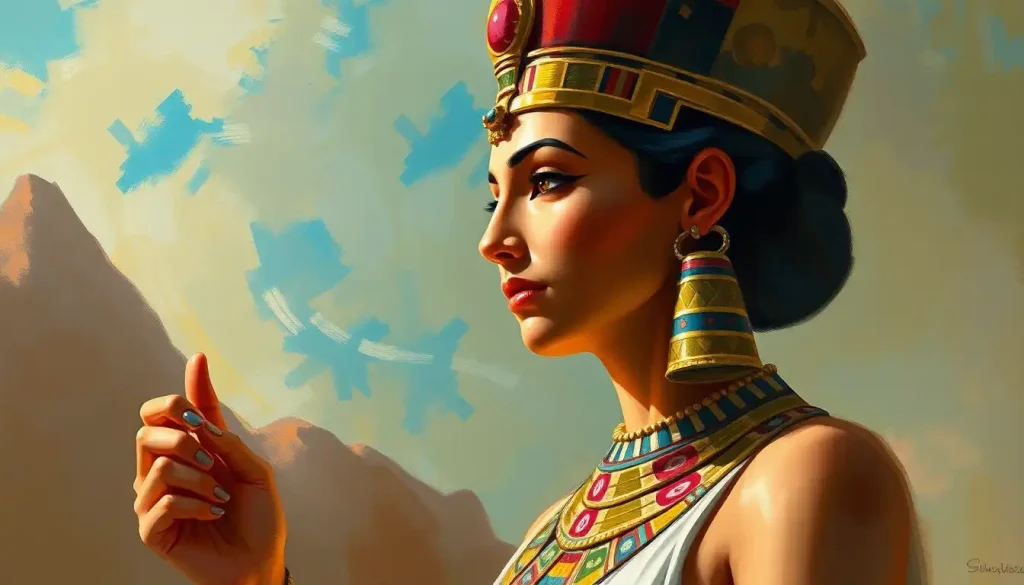Money might fill your bank account, but it’s the experiences you choose that truly fill your life. This simple yet profound statement encapsulates the essence of what it means to truly experience wealth. In a world obsessed with financial metrics and material possessions, it’s easy to lose sight of the real purpose of accumulating wealth – to enrich our lives and the lives of those around us.
Redefining Wealth: More Than Just Numbers
When we hear the word “wealth,” our minds often jump to images of overflowing bank accounts, luxurious cars, and sprawling mansions. But is that really what wealth is all about? True wealth extends far beyond the confines of our financial statements. It encompasses the richness of our experiences, the depth of our relationships, and the fulfillment we derive from living a life aligned with our values.
True wealth is not just about having money; it’s about having the freedom to choose how we spend our time and resources. It’s about the ability to create lasting memories, pursue our passions, and make a positive impact on the world around us. When we shift our perspective on wealth, we open ourselves up to a world of possibilities that go far beyond material possessions.
The Experience Economy: Investing in Memories
In recent years, there’s been a noticeable shift towards what economists call the “experience economy.” More and more people are choosing to invest their money in experiences rather than things. This trend is particularly pronounced among millennials and Gen Z, who often prioritize travel, concerts, and unique adventures over accumulating material possessions.
But why this shift? Research has shown that experiences tend to bring more lasting happiness than material purchases. While the initial excitement of buying a new gadget or piece of clothing quickly fades, the memories of a great adventure or a meaningful experience can bring joy for years to come. These experiences become part of our personal narratives, shaping our identities and enriching our lives in ways that material possessions simply can’t match.
Aligning Wealth with Values: The Key to Fulfillment
One of the most powerful ways to experience your wealth is by aligning it with your personal values and passions. When your financial decisions reflect what truly matters to you, you’re more likely to feel a sense of purpose and fulfillment. This alignment can transform the way you view and use your wealth, turning it from a mere number into a tool for creating a life you love.
Consider the story of John, a successful entrepreneur who had always dreamed of making a difference in education. Instead of simply accumulating more wealth, John decided to use his financial resources to start a foundation that provides scholarships to underprivileged students. By aligning his wealth with his values, John not only created a lasting legacy but also experienced a deep sense of fulfillment that no amount of material possessions could provide.
Breaking Free from the Golden Handcuffs
For many high-achievers, the pursuit of wealth can sometimes feel like a trap. They find themselves working longer hours, taking on more stress, and sacrificing their personal lives in the name of financial success. This phenomenon, often referred to as “golden handcuffs,” can leave individuals feeling trapped by their own success.
Breaking free from these golden handcuffs requires a fundamental shift in mindset. It involves recognizing that wealth with no regrets is about more than just accumulating money. It’s about creating a life that’s rich in experiences, relationships, and personal growth.
This doesn’t mean abandoning financial goals altogether. Instead, it’s about finding a balance between financial security and experiential richness. It’s about making wealth real by using it as a tool to create a life you love, rather than letting it become the sole focus of your existence.
The Art of Experiential Wealth: Strategies for Living Richly
So how can we start experiencing our wealth in more meaningful ways? Here are some strategies to consider:
1. Invest in experiences: Instead of always opting for material purchases, consider spending your money on experiences that create lasting memories. This could be travel, learning a new skill, or attending cultural events.
2. Prioritize relationships: Use your resources to strengthen bonds with family and friends. This could mean hosting gatherings, planning group trips, or simply having the flexibility to spend quality time with loved ones.
3. Pursue personal growth: Invest in your own development through education, coaching, or wellness activities. Remember, personal growth is a form of wealth that pays dividends throughout your life.
4. Give back: Use your wealth to make a positive impact in your community or support causes you care about. The joy of giving can be one of the most fulfilling ways to experience your wealth.
5. Create a wealth lifestyle: Design a lifestyle that allows you to enjoy your wealth in ways that align with your values. This might mean working less to have more free time, or structuring your work in a way that gives you more flexibility.
Overcoming Barriers to Experiencing Wealth
Despite understanding the importance of experiencing wealth, many people still struggle to break free from traditional notions of success and fulfillment. Some common barriers include:
1. Fear of financial insecurity: Even when they have more than enough, some people struggle to let go of the fear of not having enough. This can prevent them from fully enjoying their wealth.
2. Societal expectations: We often feel pressure to display our wealth in certain ways, like owning luxury items or living in expensive neighborhoods. These expectations can distract us from what truly brings us joy.
3. Habit and inertia: It’s easy to fall into routines and continue accumulating wealth without stopping to consider how we want to experience it.
4. Lack of imagination: Sometimes, we simply struggle to envision how we could use our wealth differently.
Overcoming these barriers requires conscious effort and often a shift in mindset. It involves developing a sense of real wealth that goes beyond financial metrics. This might mean working with a financial advisor who understands the importance of experiential wealth, or seeking out mentors who have successfully aligned their wealth with their values.
The Journey to Wealth Mastery
Experiencing your wealth fully is not a destination, but a journey. It’s about developing wealth mastery – not just in terms of financial acumen, but in the ability to use your resources to create a rich and fulfilling life.
This journey often involves:
1. Self-reflection: Regularly taking time to consider what truly matters to you and how your wealth can support those priorities.
2. Experimentation: Trying out different ways of using your wealth and seeing what brings you the most fulfillment.
3. Continuous learning: Staying open to new ideas and perspectives on wealth and success.
4. Flexibility: Being willing to adjust your approach as your values and circumstances change over time.
Remember, the goal is not to completely abandon financial prudence or long-term planning. Instead, it’s about finding a balance that allows you to enjoy your wealth now while also securing your future.
Creating Your Wealth Experience Plan
To start experiencing your wealth more fully, consider creating a Wealth Experience Plan. This plan should complement your financial plan, focusing on how you want to use your resources to create a rich and fulfilling life. Here are some steps to get started:
1. Conduct a personal wealth audit: Take stock of all your resources, not just financial ones. This includes your skills, relationships, time, and experiences.
2. Define your values and priorities: What matters most to you? What kind of experiences do you want to have in your life?
3. Set experiential goals: Alongside your financial goals, set goals for the experiences you want to have and the ways you want to use your wealth.
4. Create action steps: Develop concrete plans for how you’ll use your wealth to achieve these experiential goals.
5. Review and adjust regularly: As with any plan, it’s important to revisit and adjust your Wealth Experience Plan regularly to ensure it continues to align with your evolving values and circumstances.
The Ripple Effect of Experiential Wealth
When we start to experience our wealth more fully, the effects ripple out beyond our own lives. By using our resources in meaningful ways, we can create positive impacts in our communities and even in the world at large.
Consider the story of Sarah, a successful executive who decided to use her wealth to start a mentorship program for young women in business. Not only did this bring Sarah a deep sense of fulfillment, but it also created opportunities for countless other women, potentially changing the landscape of business leadership for years to come.
This ripple effect is part of what makes experiencing wealth so powerful. When we use our resources in alignment with our values, we have the potential to create change that extends far beyond our own lives.
The Ultimate Measure of Wealth
In the end, the true measure of wealth is not the number in your bank account, but the richness of your life experiences. It’s about creating a wealth and success story that’s uniquely yours, one that reflects your values, passions, and the impact you want to have on the world.
As you embark on your journey to experience your wealth more fully, remember that it’s not about spending frivolously or ignoring financial responsibility. It’s about making conscious choices to use your resources in ways that bring you joy, fulfillment, and a sense of purpose.
Wealth of experience is about recognizing that true prosperity lies in the richness of our lives, not just the size of our bank accounts. It’s about understanding that wealth is the ability to fully experience life, in all its beautiful complexity.
So, as you continue on your financial journey, ask yourself: How can I use my wealth to create a life rich in experiences, relationships, and meaning? How can I ensure that my wealth serves my values and aspirations? By continually asking and answering these questions, you’ll be well on your way to experiencing true wealth – a wealth that fills not just your bank account, but your heart and soul as well.
Remember, money might fill your bank account, but it’s the experiences you choose that truly fill your life. Make those choices count.
References:
1. Gilovich, T., Kumar, A., & Jampol, L. (2015). A wonderful life: Experiential consumption and the pursuit of happiness. Journal of Consumer Psychology, 25(1), 152-165.
2. Pine, B. J., & Gilmore, J. H. (2011). The experience economy. Harvard Business Press.
3. Dunn, E. W., Gilbert, D. T., & Wilson, T. D. (2011). If money doesn’t make you happy, then you probably aren’t spending it right. Journal of Consumer Psychology, 21(2), 115-125.
4. Kasser, T. (2002). The high price of materialism. MIT press.
5. Diener, E., & Biswas-Diener, R. (2002). Will money increase subjective well-being? Social indicators research, 57(2), 119-169.
6. Lyubomirsky, S. (2008). The how of happiness: A scientific approach to getting the life you want. Penguin.
7. Csikszentmihalyi, M. (2000). Beyond boredom and anxiety. Jossey-Bass.
8. Seligman, M. E. (2012). Flourish: A visionary new understanding of happiness and well-being. Simon and Schuster.
9. Grant, A. M. (2013). Give and take: A revolutionary approach to success. Penguin.
10. Newport, C. (2012). So good they can’t ignore you: Why skills trump passion in the quest for work you love. Grand Central Publishing.












Would you like to add any comments? (optional)